|
This year, our West Bay team has engaged in a collective care activity during our monthly staff meeting. Each month, different staff members volunteer to lead a collective care activity based on their personal interests to support our program’s work/life balance goals while also learning fun facts about our colleagues’ different interests. So far this year, we have done cupcake decorating with Mickey, Sound bath with Jill, Ripping packs (Pokémon tournament) with Kat, Sip N’ Paint with Grace, friendship bracelets with Roxy, and Teatime with Cristina. These activities have boosted team morale and camaraderie. Our staff have identified that they look forward to our collective care time. Blog Post By: Jalecia Jones, Clinical Supervisor
0 Comments
 Recently I got a puppy. Actually, my partner and I got TWO puppies on the same day, leading us to wonder what is wrong with us (impulsive decision!) and leading us to get outside - several times a day. In reflecting on the impact of this overnight lifestyle adjustment, I’ve decided to write a bit about the benefits of getting outside for our physical and mental wellness. I’ll also include a puppy photo because I believe exposure to cuteness leads to a type of mental wellness for many of us. You’re welcome. It’s not just canine companions that encourage getting outside; most of us in the Unconditional Education family spend a lot of time with children at work. And children and youth tend to be experts at getting outside -- (and are cute too!). I guess what I’m getting at is that going outside is almost always an option and this can enhance our lives significantly. It's easy to get caught up in the stress of our responsibilities, tethered to screens and collapsing on the couch after work. Looking at the natural instincts of children to run and play is a gentle reminder that we, too, can be profoundly impacted by just getting out there and taking a walk. Nourishing the Body and Mind: Embracing Active Play and Wonder: Children are naturally inclined to move their bodies and engage in active play. We even offer students “energy releases” to help them eventually focus better in the classroom. Spontaneous outdoor activities not only promote physical health but can also foster a sense of joy and tap into our inner freedom. As adults, we can take inspiration from children's playfulness and incorporate more imagination and movement into our outdoor experiences. Likewise walking my puppies has forced me to get up earlier, splash in puddles, appreciate the thrill of finding the perfect chew-stick, and even notice more squirrels perching in the trees. We all know that exercise boosts mood and improves physical health. Add in the playfulness of seeing the world through the eyes of a child or pet, and suddenly we’ve got the potential for an energetic shift towards wonder. Sometimes I really don’t feel like going on a walk, but I ALWAYS feel better afterwards: more physically grounded, not to mention proud of the steps I’m adding to my exercise goals. Cultivating Connection: Building Bonds Through Shared Experiences: Children routinely demonstrate how outdoor activities provide endless opportunities for social interaction and community building. Walk through an elementary school playground at recess and you’ll see children chasing each other, playing together and huddling to talk in little groups. Sometimes the play escalates and there’s drama, of course, but there’s no denying the buzz of community on a playground during the school day. It is a key part of a child’s day and where relationships often grow and are strengthened. Now that I’m walking my dogs' multiple times a day, I’ve come to know my neighbors in an entirely new way. The morning crew at my nearby coffee shop now knows my coffee order and has it ready before I even get inside (it’s a small coffee, pretty easy one to remember but still-I feel seen and connected!). I hear about things that are going on in our community from the folks who are closely involved, and I notice when things change over time. I am more present in my own neighborhood, and this feels invaluable. I have my puppies to thank for this, 100%. The Science Supports Getting Outside: I’ve written this as an opinion piece, but there’s science behind it. This Cultivating Health article from UC Davis clearly outlines the physical and mental health benefits of getting outside. I highly recommend it if you’d like some simple ideas and inspiration for your own journey into the outdoors. And as promised, please enjoy this photo of our furry friends Atticus (GusGus) and Penelope (Lopey). Blog Post By: Emily Marsh, Director of Clinical Intervention Services  This school year we’ve established a new partnership with Markham Elementary, located in the heart of Oakland, CA. Within this partnership, we have expanded our traditional clinical outpatient model, which has primarily been a school-based clinician providing individual and/or group therapy to students, to include a Student Support Assistant that provides behavioral and social emotional push-in support on campus in conjunction with the clinician. Coupling individual therapy with in-class behavioral support has been a very effective holistic approach and has been very well received by our partners. Our clinician and SSA at Markham are our newest Seneca Dream team and they are doing great work!!! Together, they have introduced Seneca, our UE model and our program’s values to the Markham community while building strong collaborative relationships along the way! We conducted a Mid-Year Partnership survey back in December to hear directly from our Markham leadership and staff on how the new partnership is going thus far and the feedback has been overwhelmingly positive! 100% of the school leadership, teachers and school staff who participated agreed or strongly agreed with the survey questions in all areas of professionalism, collaboration, effectiveness, and communication! “They are very helpful, and the students really enjoy working with them. They are also a great resource for staff.” -Markham staff “The team has adapted to meet the needs of families/students on our campus. Team is dedicated to student wellness and is an integral part of the school day.” -Markham staff Creating an inviting space In UE we believe that “everything speaks” and we strive to create safe therapeutic student spaces that are welcoming and inviting to the community we serve. Students at Markham have named the Seneca portable “The Aquarium” due to its aquatic theme and many have stated that it is their favorite classroom on campus because it’s the most fun! The goal of our staff when they moved in was to create a space in which all of the students feel comfortable in. The Seneca team also wanted to be well integrated into the school community and didn’t want to the students we serve to feel isolated or “othered” so they wanted the Aquarium to be accessible to the whole school community. To accomplish this, the team has worked with Markham’s Principal to implement “Principal treat Fridays” as a school-wide incentive in which students can use their Markham bucks to enter a raffle. Each week, raffle winners get to come hang out in the Seneca Aquarium and have a treat! This is just one illustration of how the Markham Seneca staff have worked to fully integrate and be of service to the entire school community. It has been so wonderful to see this brand-new school partnership develop and grow so much already this year and we look forward to continued growth and partnership at Markham and throughout OUSD. Shout out to the Markham staff for all of your work to help this first-year partnership develop and flourish! Blog Post By: Tiana Dudley, Director of School Partnerships
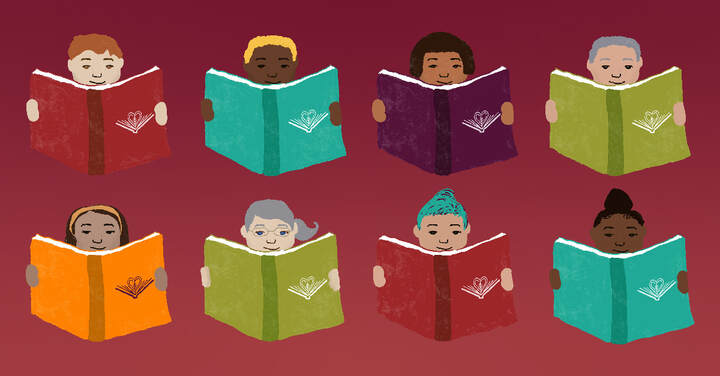 Children’s literature has become a personal matter for me over the past few years and serves as a window to the world, shaping young minds and fostering empathy, understanding, and a sense of identity. In today's diverse society, the importance of representation in children's literature cannot be overstated. When children see characters who look like them, come from similar backgrounds, or face comparable challenges, they feel seen, validated, and empowered. Reflecting Diversity: One of the primary reasons representation in children's literature is crucial is because it reflects the diverse world we live in. Children come from various cultural, ethnic, and socio-economic backgrounds, and they deserve to see themselves represented in the books they read. When children encounter characters who share their heritage or experiences, it validates their identities and fosters a sense of pride in their cultural heritage.  Exposure to diverse characters helps children develop empathy and understanding towards people who are different from them. By reading about characters from different backgrounds, children learn to appreciate and respect diversity, which is essential in promoting inclusivity and combating prejudice. Building Empathy and Understanding: Children's literature has the power to transport readers into the lives of others, fostering empathy and understanding. When children encounter characters facing challenges or situations different from their own, it broadens their perspective and helps them develop empathy for others. For instance, a child reading about a character with a disability may gain a better understanding of the challenges people with disabilities face and develop empathy towards them. Moreover, representation in children's literature can help break down stereotypes and misconceptions. By portraying diverse characters in multifaceted roles, authors challenge stereotypes and show that people are more than just a single narrative. This, in turn, encourages children to question societal norms and embrace individuals for who they are rather than predefined stereotypes. Fostering a Sense of Identity and Belonging: For children belonging to marginalized communities, seeing characters who share their identities and experiences can be transformative. Representation in children's literature helps validate their experiences and fosters a sense of belonging. When children see characters who look like them achieving great things, it instills a sense of possibility and reinforces their belief in their own capabilities. Representation can empower children to embrace their identities proudly and resist societal pressures to conform. By seeing diverse role models in literature, children are encouraged to celebrate their uniqueness and pursue their dreams, regardless of societal expectations. Final Thoughts: Representation in children's literature is essential for fostering empathy, understanding, and a sense of identity among young readers. By reflecting the diverse world we live in and providing children with characters they can relate to, children's literature plays a crucial role in shaping their worldview and promoting inclusivity. As community providers, educators, and parents/caregivers, it is our responsibility to ensure that children have access to literature that celebrates diversity and empowers them to embrace their identities fully. By doing so, we can create a more inclusive society where every child feels valued and represented. I encourage you to visit your local library, add a book to a Little Free Library, or read a children’s book yourself…they’re fun, I promise! Blog Post By: Daniel Perez, Director of School Partnerships
On Tuesday, January 23rd, UE piloted our first ever UE Annual Training Evaluation and Recertification Process. The first session focused on the popular training: Trauma Informed Education (TIE). The goals for this session were to ensure that UE provides relevant training that meets our partners' needs, is data-driven, and rooted in a DEI framework. 9 lead trainers gathered together and reviewed 500 attendee evaluations between Fall 2020-Present, utilized the new DEI Screener to assess the training through a DEI lens, and provided their own personal feedback, recommendations and revisions. The quantitative data from the 500 evaluations were strong (summarized below) and qualitative data provided helpful themes for continued improvement: One recommendation that came out of this review is to develop mini modules where staff can more easily mix and match content depending on partnership requests. Following this session, all feedback will be incorporated into the new version of TIE for the 2024-2025 academic school year. Blog Post by: Dev Cuny, Director of Implementation
|
Authors:School Program Partnerships We're Hiring!Interested in joining our School Program Partnerships' Team? Check out our open positions below!
Categories:
All
Archives
May 2024
|
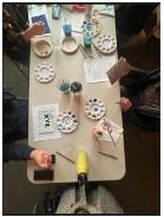
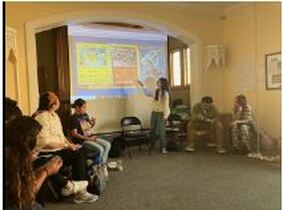
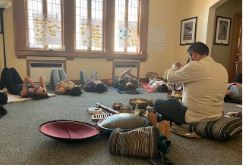
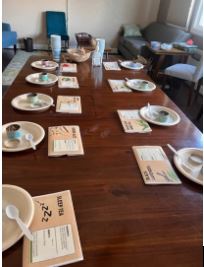


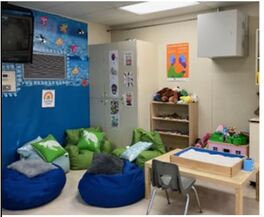
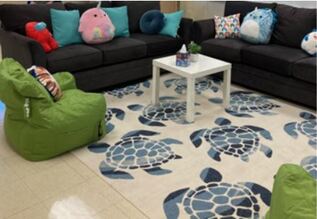


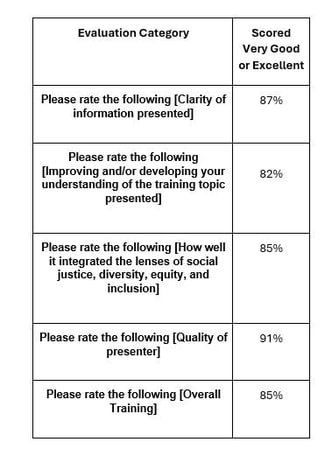
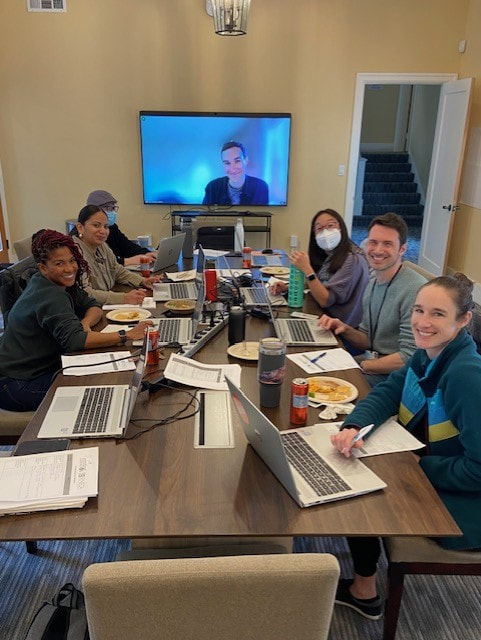
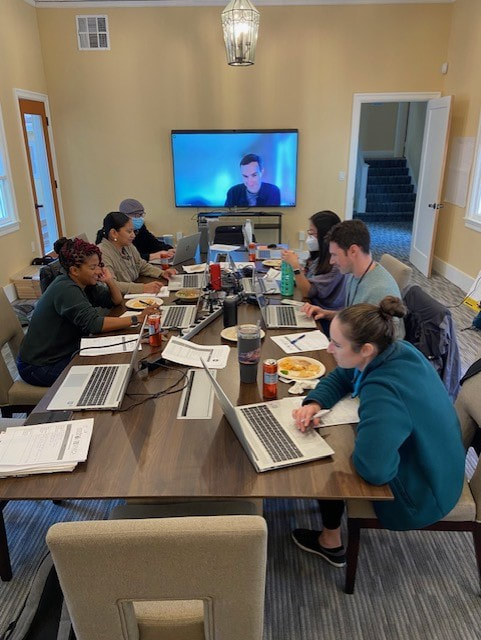

 RSS Feed
RSS Feed